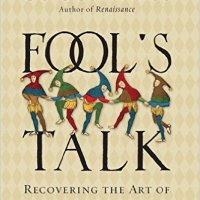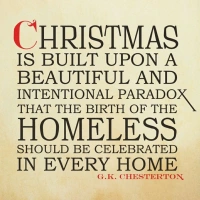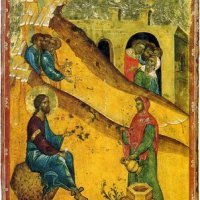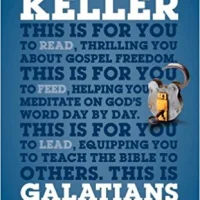 How would you define the word “peace”? When most people think of peace, the first idea that comes to mind is the opposite of war—the absence of fighting. In other words, peace is for many a negation—a lack of something bad, sort of a blank slate indicating not much else except the possibility of a fresh start. You get a glimpse of this view of peace from the feeling a sunrise or sunset stirs in you. But peace is much more than a feeling or lack of conflict. There is a reason why the Bible’s words for peace—shalom in Hebrew and eirene in Greek—are carried over into English as greetings and names of ministries. But the reason is not always obvious.
How would you define the word “peace”? When most people think of peace, the first idea that comes to mind is the opposite of war—the absence of fighting. In other words, peace is for many a negation—a lack of something bad, sort of a blank slate indicating not much else except the possibility of a fresh start. You get a glimpse of this view of peace from the feeling a sunrise or sunset stirs in you. But peace is much more than a feeling or lack of conflict. There is a reason why the Bible’s words for peace—shalom in Hebrew and eirene in Greek—are carried over into English as greetings and names of ministries. But the reason is not always obvious.
Many universal human longings we take for granted. Love, belonging, righteousness, work, and rest. These all lie close to our hearts and are unavoidable. Others lie under the surface or function like the air we breathe. Peace is that kind of longing. It’s rare for people’s hearts to ache for peace and human flourishing until war, hardship, alienation, oppression, or other aching frustrations wake us up to our profound need for deep and lasting peace. Perhaps the best way to grasp what I mean by this kind of peace is by tapping into your imagination. Try this: what do you wish out of life for your great-grandchildren: people you love but may never know. Your answers are likely very similar to everyone else’s. Unless you wish for them world domination or to win the lottery jackpot, I bet you imagine things like happiness, freedom, health and prosperity, good education, a safe neighborhood, marriage and family, friends, time for leisure and recreation, community service, devotion to God, a vibrant church. Those are what peace looks like. But peace is also allusive. Whether you pursue it alone or in cooperation with others, hard-won gains seem like sand slipping through your fingers. Just when you get a glimpse that life is truly beautiful, Murphy’s Law comes crashing down, reminding you this world is profoundly out of step with the way things ought to be. Are we doomed to this cycle of life’s frustrations, crying out “Peace! Peace!” when there is no peace? Is it even rational to long for peace, or are we just deluding ourselves? Is it responsible and realistic to just steer clear of the stubborn problems “out there” and salvage a measure of comfort for our individual lives, homes, families, and neighborhoods?
This passage in the book of Ezekiel, chapter 34, verses 11-31 provides us answers to these perplexing questions. What will it show us? That the LORD will rescue his lost people and shepherd them in justice as their healer, protector, provider, and ever-present God. You can only experience the kind of soul peace that buttresses human flourishing and sustains you through times of trouble by reconciliation with God through Christ the Good Shepherd.
Before we get started with an unfamiliar book like Ezekiel, it’s important to get a feel for the historical situation. The prophet Ezekiel wrote his book to the Jews (the people of God) during their Babylonian exile between 586 and 538 B.C. At that time the Jews living outside their homeland lacked any semblance of peace. Their world was turned upside-down as they found themselves outsiders in every way—spiritually, culturally, relationally, politically—and kept on the fringes of society by their captors to prevent them experiencing life as neighbors should treat each other. Their longings for peace, and where they found it, are instructive for every single person who longs for peace today.
Peace: Why Do We Need It?
To be reconciled to each other (vv. 12-13a)
The lost sheep of Israel had been scattered to far-off places. The majority of exiles were sent to Babylon, but that city was not the only place of exile (Jer 43:1-7). The language of darkness and gloom is frequently used for the Day of the Lord (Joel 2:2; Zep 1:15; cf. Ex 20:18, 21; Dt 4:11; 5:22-24; 1 Kgs 8:12; Ps 97:2; Isa 60:2; Jer 13:16; 23:12; Am 5:18-20; Joel 2:2; Zeph 1:15). Here it refers to that dark day of Babylonian exile in the recent past when the sheep were scattered to the nations. We need peace because without it we are lost and estranged from each other—scattered here and there. Peace restores the community after social bonds are broken by reweaving the fabric of people’s lives back together. That’s what returning from exile must have felt like.
To be reconciled to the earth (vv. 25-27a)
Notice the forms of danger: wild beasts (including lions and bears such as those the young shepherd David killed protecting his sheep), deserts, and sleeping in the forest (Ps 104:20-21; Jer 5:6). The safety envisioned harkens back to the peaceful, harmonious relationship between humans and nature in the garden of Eden. Wild animals were a particular danger in the land, especially when God’s people were under covenant judgment for sin (Lev 26:6; Jdg 14:5-6; Isa 11:6-9; 65:25). “My hill” is probably Zion. For the land of Israel, the “showers in season” refer to the autumn rains that inaugurate the rainy season and the spring rains which signal its end. (Jer 5:24). Agricultural bounty for Israel is a common OT theme concerning the last days. Fruit trees and farmland will yield a full harvest, and thus people will be “secure in their land.” You and I yearn for harmony with the land. We long for our labors to yield a bountiful crop. When we “till the soil” (as it were) of the plot of earth assigned to us, we hope our work is not in vain. Remember God’s curse on Adam was that his relationship with the land would be adversarial (Gen 3:17-19). We long for that curse to be lifted. We long for a return to Eden. We long for peace and human flourishing.
Think of our popular songs from the era of Peace and Love. In 1967 the Youngbloods sang “Get Together” which includes their hope for peace: “Come on people now, smile on your brother, everybody get together, try to love one another right now.” Or our federal government agency The Peace Corps, “a service opportunity for motivated changemakers to immerse themselves in a community abroad, working side by side with local leaders to tackle the most pressing challenges of our generation.” Local organizations like Neighborhood Watch, PTSA, Boy & Girl Scouts, Habitat for Humanity and farm co-ops, demonstrate the hope we all have for peace and human flourishing. Not to mention all the various Christian ministries that try to replicate the same kinds of services but also coupled with the gospel. Flourishing societies tends to work toward peace because we sense our great need of it.
Peace: What Frustrates It?
Earthly brokenness (vv. 14, 16a, 25, 27a, 29)
Lack of basic human needs (vv. 14, 25, 27a, 29). Seeing some of these in the text requires looking behind the longings for peace and human flourishing to the various frustrations that stir the longings. Peace with the earth is frustrated by scarcity of nutritious food, clean water, safe shelter, adequate clothing, protection from the elements and other dangers in nature. Christian missionaries and mercy ministries serving on the frontiers of the developing world know that helping a broken community gain life’s basics brings peace to the entire community. Why do we think it’s any different in our community?
Injury, sickness, weakness (v. 16a). Peace is also frustrated when you get injured, sick, or just lack the strength to take proper care of yourself. Sometimes we bear the blame due to foolish choices when we knowingly go astray. But other times we are victims of circumstances thrust upon us. All of creation is fallen and it groans as in the travail of childbirth. It’s not hard to get swallowed up in it. Tragically, Christians are prone to perpetuate the brokenness when we misunderstand the purpose of prayer to alleviate suffering. Praying for peace without bringing peace to a people who have no peace—what good is that? The Bible says faith without works is dead (Jas 2:15-17).
Human selfishness (vv. 17-22, 27b-28; Ezek 34:1-10)
Bully sheep/goats (vv. 17-22). The rams and goats likely represent influential and powerful classes of people who were oppressing poor Israelites, particularly in Jerusalem. These, along with the bad sheep, are members of the flock who hoard and squander the community’s resources that are meant to be shared and enjoyed by all. Sometimes their selfishness directly causes destruction in the flock. But other times selfish attitudes and choices indirectly lead to the destruction of sheep. The fat and strong sheep not only selfishly bully themselves to the front of the line to fill themselves with water first, they proceed to muddy the waters for those who come after them, despoiling the resources for the weak, poor, and dispossessed in the flock. Several distinctions are made between different kinds/classes of sheep. Fat and lean sheep describe the haves and the have nots. Strong and weak sheep describe the oppressors and the oppressed, the predators and the prey, the bullies and the outcasts.
Oppressive overlords (vv. 27b-28). In this section of the passage the ones who have shackled God’s sheep with a yoke bar are foreign oppressors. Ancient Israelites would have understood the yoke imagery, referring to wooden pegs inserted down through holes in the yoke and tied with cords around the animal’s neck to form a collar binding the animal to the yoke (Lev 26:13; Isa 58:6; Jer 27:2; 28:10-13; Ezek 30:18). The people become prey to the nations just as if wild beasts had devoured them.
Neglectful shepherds (Ezek 34:1-10). We cannot ignore the main reason the flock is exiled and scattered through the nations. In the first part of Ezekiel 34 (cf. vv. 1-3) neglectful shepherds are the ones who selfishly fatten up themselves at the expense of the sheep entrusted to their care. Oppressive leaders are not just “out there” but are also “right here”! A bad pastor is one of the worst afflictions a church endures. Nothing destroys peace in a community like a selfish leader.
Some of you know the backstory of how my family came to this church. We were members of another church where several families had a significant disagreement and relationship breakdown with our pastor. Without going into details, let’s just say we were very hurt, and even more so when we perceived other pastors circling the wagons around him before hearing both sides of the story. Eventually we showed up on the doorstep of this church—spiritually wounded, feeling bullied, oppressed, and neglected, and fearful that we’d be labeled black sheep forever. Human selfishness had killed all semblance of peace, not only in our hearts but in our lives as well.
Here’s the point. I know I’m not alone. You’re not alone. I know every single person has a story of peace being robbed from them by earthly brokenness or human selfishness. You know from experience that when close relationships break down, or when earthly troubles overwhelm, your sense of peace falls apart. And if nobody seems to care, if the evils of poverty or sickness come upon you, if your friends and family abuse you, if your leaders oppress you, and if even your church and pastors neglect to care for you, remember that the LORD remembers you. One reason God gave us the Psalms is because they are full of blues songs! They give voice to your longing for peace. The Gospels tell story after story after story of Jesus meeting people in their suffering and meeting their earthly needs. The Bible ends with a promise that God will wipe every tear away and sorrow will be no more. Jesus walks with his suffering people, and suffers with them, from beginning to end.
So far this has been a different kind of sermon for us. Does it make you uncomfortable to talk about how much God cares about peace on earth and human flourishing? This is not the “social gospel” (which is no gospel at all but just a helping hand here and now). Rather it’s the “gospel of the kingdom” that Jesus preached in Matthew, Mark, Luke, and John, and that his apostles preached in the rest of the New Testament. You might be thinking, “I suppose, but shouldn’t Jesus and the gospel always be preached first as most important? After all, so far you’ve hardly mentioned peace with God at all.” Here’s my answer: that’s simply not a ministry rule Jesus followed. Yes, gospel and mercy always go together in Jesus’ ministry. Sometimes the gospel is announced first (Lk 9:2, 6). Other times mercy is given first (Lk 7:22). Every so often Jesus offers mercy first and then never gets the opportunity to share the gospel (Lk 17:11-19). The message is only “social gospel” when the gospel of Christ is neither believed nor announced but only earthly mercy is intended. Brothers and sisters, we need to become more comfortable with both/and rather than either/or thinking, with gospel-plus-mercy rather than gospel-then-mercy. Ezekiel 34 is just one example of many Bible passages that shows us why our gospel must include peace and human flourishing if it’s going to be actual good news to the world.
Peace: How Can We Get It?
Trust the Good Shepherd (vv. 11, 13b-16, 23-26)
That’s the earthly peace—the mercy. Now the heavenly peace—the gospel. We really need first a heavenly peace before we are in a position to give earthly peace to others. Why? Because we need to be reconciled to God. At root what frustrates peace is sin because sin breaks our harmonious relationship with God, other people, and creation. That is why we can only get peace by trusting the Lord as our chief shepherd. All other plans and strategies for getting peace will ultimately leave you frustrated, broken, bitter, and hopeless. Remember the saying, “The road to hell is paved with good intentions”? The nature lover will end up as dust but along the way will trample people to save a few trees. The strong will end up as bully for his cause. The leader will end up neglecting and consuming his people. The hopeful idealist will end up heartbroken and dashed on the rocks of a cold and broken world. And the spiritually wounded will be hurt again and again. It turns out the only way we can get unshakeable and everlasting peace is to trust Jesus Christ the Good Shepherd. Why? Because only Jesus is strong and compassionate enough to give us every kind of peace—heavenly and earthly—that we need. Only Jesus is incorruptible and not subject to human selfishness. He is the Good Shepherd who not only lays down with his sheep, but lays down his life for them on the cross, forgiving their sins, and washing away their guilt (personal and social). He gives us his perfect righteousness and makes us his precious sheep. Jesus died so we would have the peace the Great Peacemaker brings—the peace of acceptance by God, the peace of fellowship and sharing with others, and the peace of harmony and prosperity with his creation. If you have peace with God, you won’t feel puffed up in pride at success in peacemaking, insulted when your peacemaking efforts for others are rejected, or defeated when your efforts to establish earthly peace are thwarted. Why? How could you be proud, insulted, or defeated when you have peace with the God of the universe and his Son the Lord Jesus Christ only by sheer grace and by nothing you deserve? What can destroy that foundation of peace? No person or earthly circumstance will be able to shake your peace with God!
Follow the Good Shepherd (vv. 30-31)
The true and final goal of covenant peace is assured knowledge of the Lord’s loving, all-sufficient, covenantal presence with his people. God’s covenant with Israel is summarized in the OT as “I will be their God, and they will be my people” (Ex 6:7; Lev 26:12; Dt 7:6; 14:2, 21; 27:9; 29:13; Ps 50:7; Isa 51:22; Jer 7:23; 11:4; 30:22; Ezek 11:20; 36:38; Joel 2:27). The new covenant promise may be summarized as “I will be their God in Christ, and they will be my people in Christ.” If God’s covenant of peace is a partnership with him in kingdom building, then follow after him and imitate his ways. Receive his blessings of peace in order to share them with others. This is a very big responsibility. How can you follow Christ in his ministry to bring peace and human flourishing to the world?
Here are a few examples of what it looks like when it actually happens in the real world. I bet you don’t remember the sermon on Mission and Destiny from Matthew 28. At the end I told you about a missionary to Peru who spoke at last year’s presbytery retreat about God’s mission to the world. In the Bible, building the City of God (the heavenly Jerusalem meaning the city of shalom) always entails three things: (1) evangelism and (2) discipleship—those are the two we remember—and (3) institution building to promote peace and human flourishing in a community of hurting people. This is the Bible’s grand story of mission. Peru Mission writes in their Philosophy of Mission: “Jesus voluntarily gave himself for the life of the world. He came teaching and bringing good news to multitudes. He healed the sick and cast out demons. He ministered to the poor, the outcast, and the oppressed. He was the ‘Prince of Peace’ who offered not only peace with God, but also the way of shalom among humanity.” Jesus never separated preaching the gospel from the earthly needs of his sheep. Evangelism and mercy ministry must go together because peace and human flourishing on the horizontal plane are the necessary fruit and validating proof that we have peace with God. If you are blessed by Jesus Christ with rich, undeserved favor, your best “thank you” is sharing your blessings with those who need to be blessed just as desperately as you need it. So the Peru Mission seeks the heavenly and earthly peace of their community—living and working and praying for the heavenly Jerusalem to come down to earth. With that vision of peace they put their hands to traditional missions work such as church planting and theological training of local pastors. But they also have ministries in the fields of medicine, K-12 and college education, child sponsorship and discipleship, and micro-finance.
That’s a big, intimidating, far-off example. What about a simple one here in our country? Tenth Presbyterian Church in Philadelphia, where James Montgomery Boice pastored for many years, hosts dinners for the poor and homeless in their community. Rather than using the more impersonal “soup kitchen” model, households in the church make it a banquet on a budget. Hospitality and food—most churches have those gifts and abilities! The church worships with their dinner guests, then everyone eats together. Table fellowship leads to joy, friendship, hope, and peace. Relationships are fostered because the sick, the broken, the lonely, the elderly, and the poor are humanized. Over time some are enfolded into the church as brothers and sisters in Christ where they find true and lasting peace: peace with God, others, and all creation. The church grows spiritually and numerically, becoming not just a doctrinally-sound gospel preaching church but a Jesus-shaped “gospel of the kingdom” church. And the name of Jesus Christ and his church are glorified rather than slandered in the community because the gospel of the kingdom brings peace to their city.
Maybe some of this sounds strange, or optional, or maybe even a little suspicious (flirting with theological liberalism?) to some of you. You might be wondering, “Where am I? Is this PCA preaching?” If not, then it should be. Because it’s biblical, and the more you read the Bible you’ll see it everywhere. Let me leave you with this quote by Matthew Henry, the famous Presbyterian and Reformed minister in England in the 1700s (back when the gospel of the kingdom was not suspicious “social gospel” like it is for many Christians today). In his commentary on Ezekiel 34 he says this about peace and human flourishing, “All that are in the neighborhood of Zion shall fare the better for it; and the nearer the church the nearer its God. The effect of this plenty is, I will make them a blessing. They shall be blessings to all about them. Those that are the blessed of the Lord must study to make themselves blessings to the world. He that is good, let him do good; he that has received the gift, the grace, let him minister the same.”
Resources
Sermon audio download
Sermon outline & commentary













